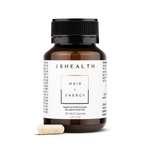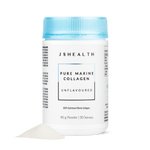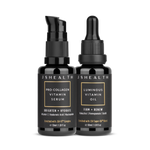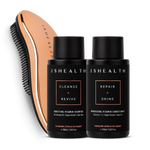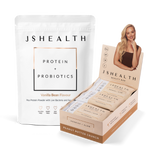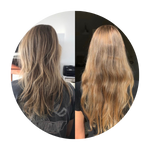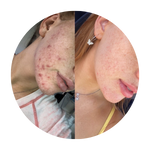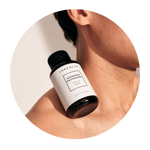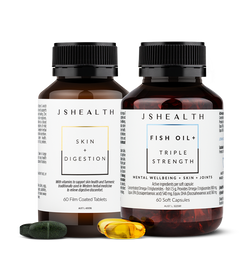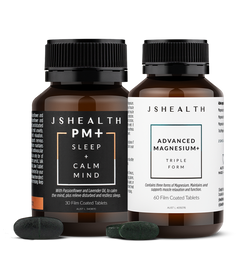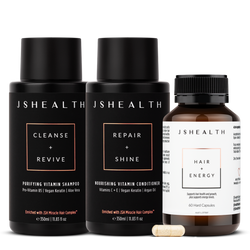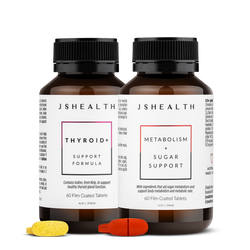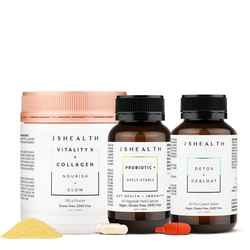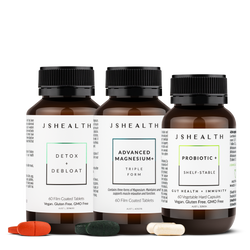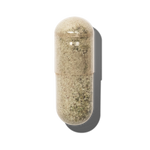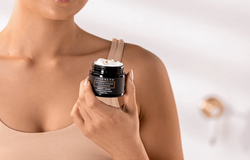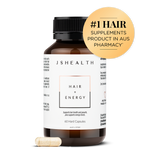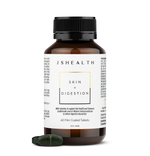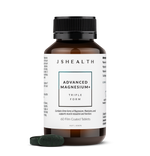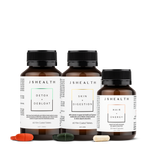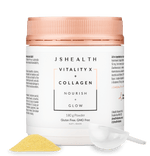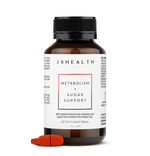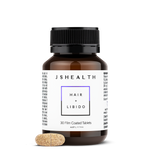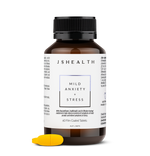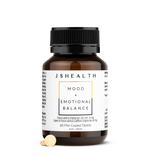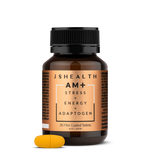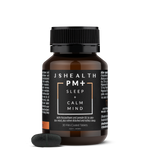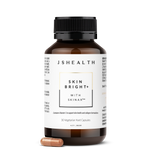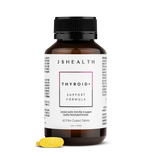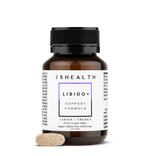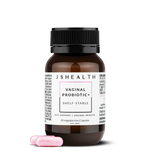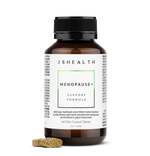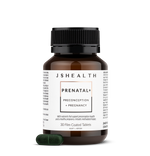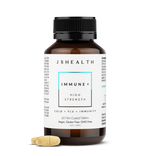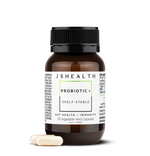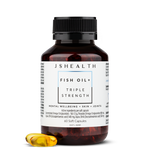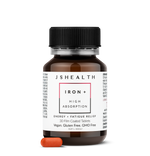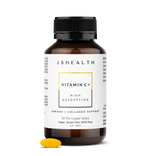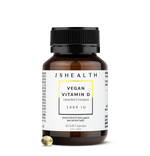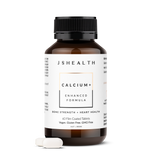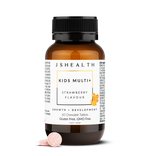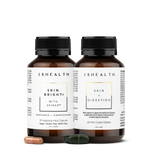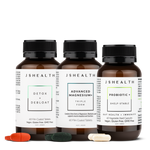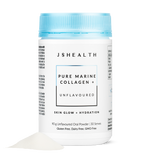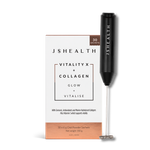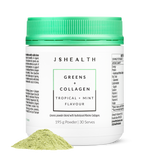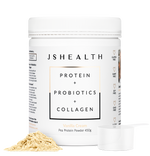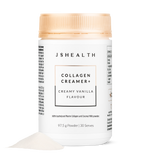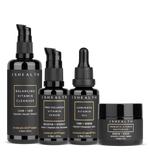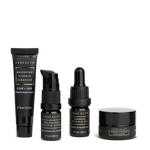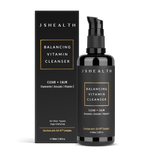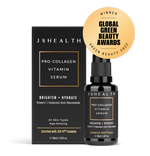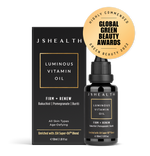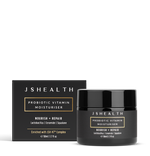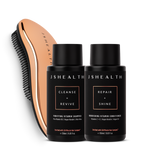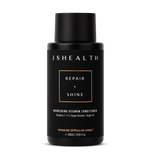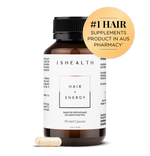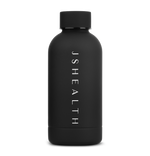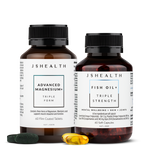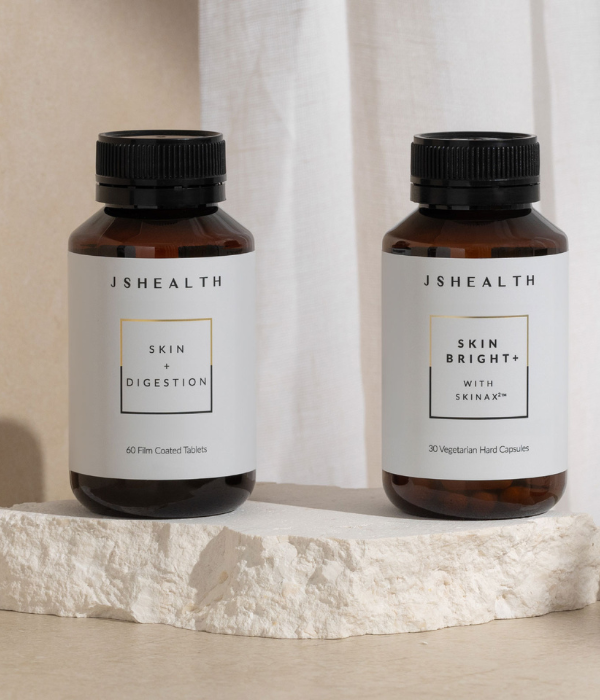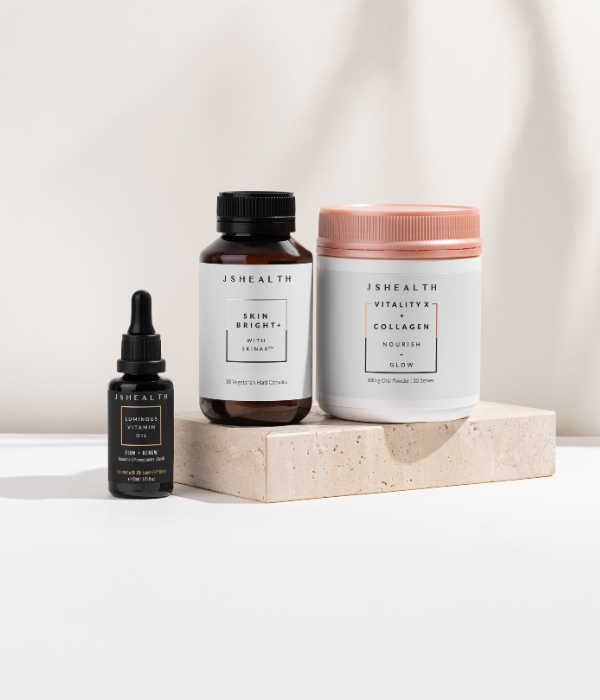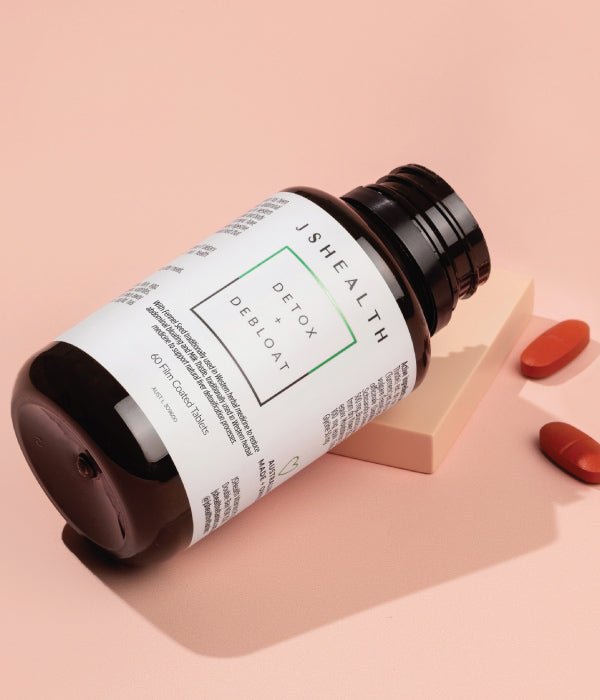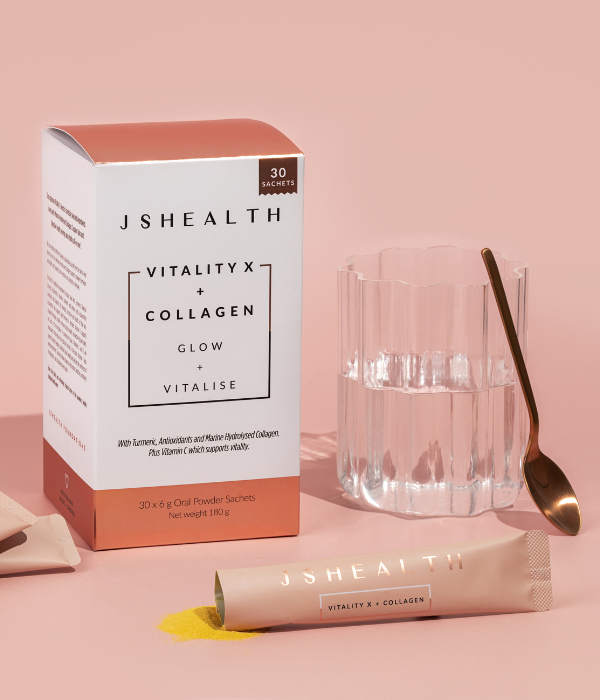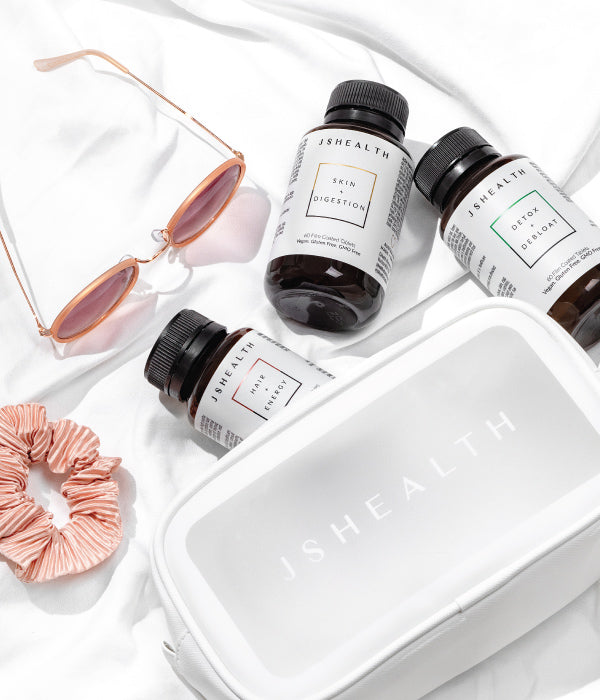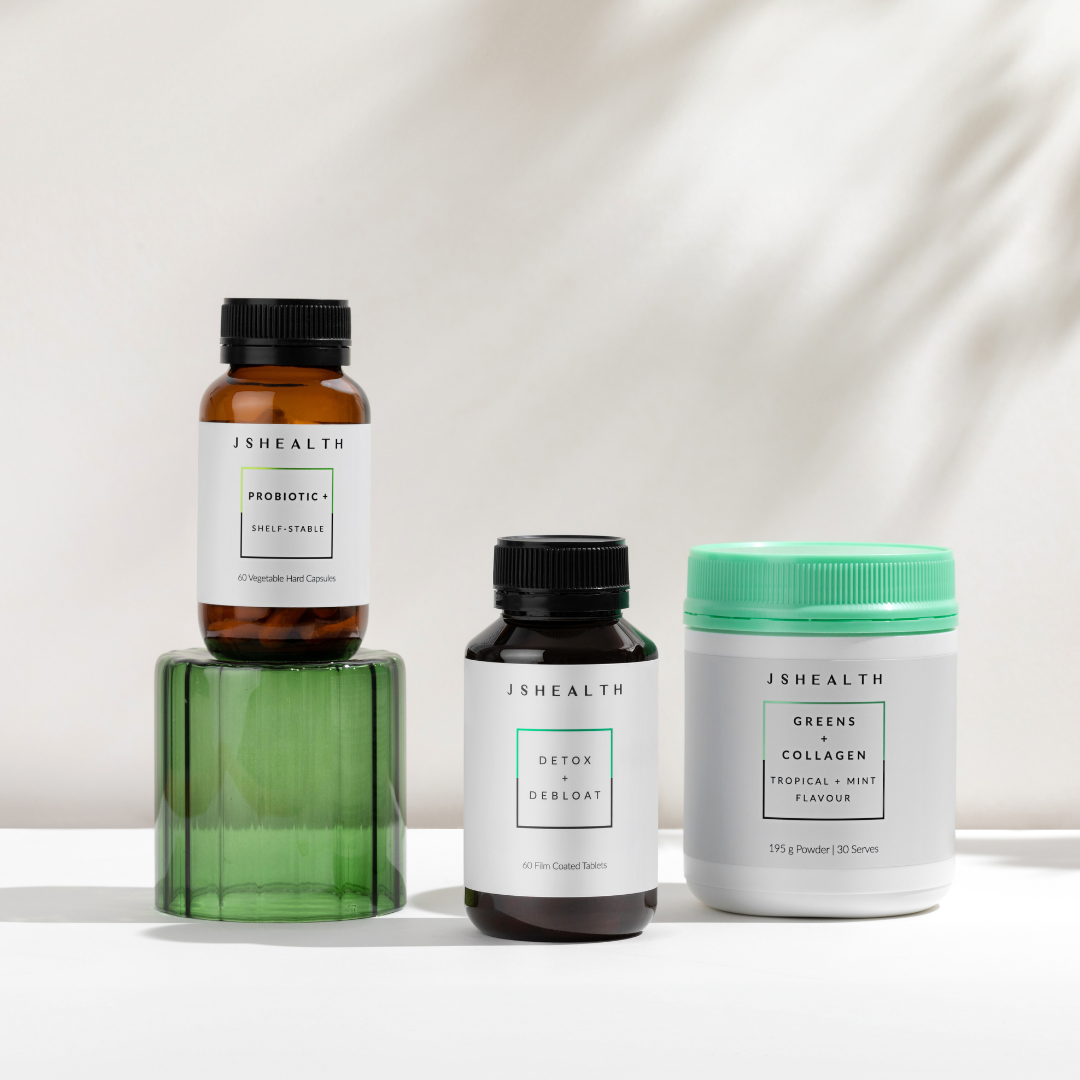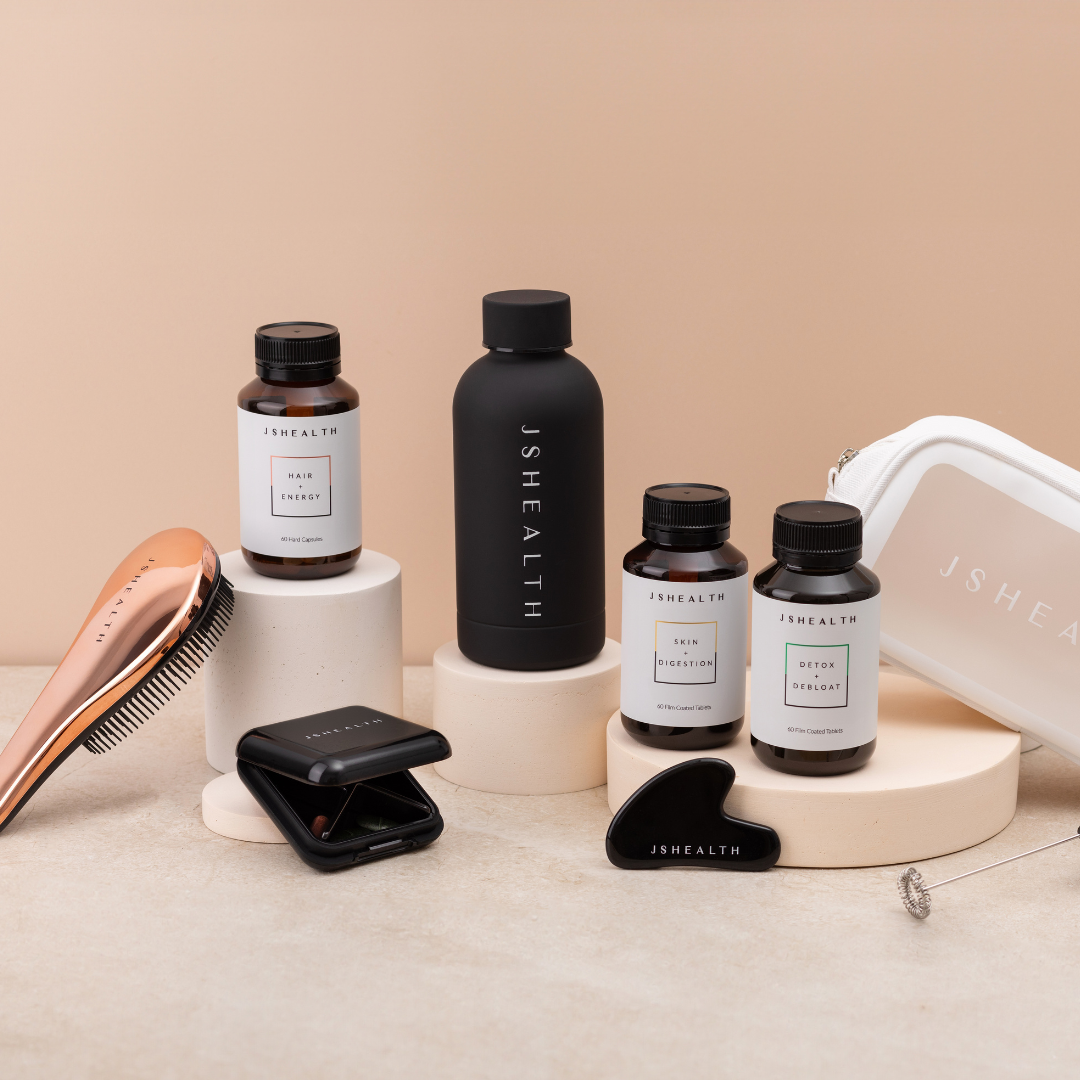Your Guide to Radiant Skin: Top Vitamins for a Glowing Complexion
Clear, glowing skin is a shared desire among many of us. Yet the path to achieving this glow, as any dermatologist would tell you, is often full of misconceptions and complexities.
Here at JSHealth, we believe the secret to a radiant complexion lies just beneath the surface. Our path invites you onto a wellness journey, shining the spotlight on nutrient-rich vitamins — the tiny but powerful players in your skin’s story.
Why Are Vitamins Essential for Healthy Skin?
A vibrant, healthy exterior is the shining evidence of a well-nourished interior, showcasing that your largest organ is getting enough vitamins, minerals and nutrients.
Understanding the skin's fundamentals and its relationship with your diet provides us with the freedom to nourish it effectively. Knowing what we put in our bodies affects our wellbeing and promotes a complexion that exudes health and vitality.
True skincare, in our eyes, begins with the nutrients you put within your body. Thus, the cornerstone of skin nutrition lies in the power of vitamins for the following reasons:
Collagen Production
One of the most vital roles for vitamins is in the production of collagen, a body protein essential for our skin. Collagen contributes largely to the skin's elasticity and firmness to keep it looking plump and youthful.
Certain vitamins, like vitamin C, play a crucial role in the synthesis of collagen. Ensuring a good supply of vitamin C in your diet aids your body in maintaining the skin's youthful and firm appearance by supporting collagen production. This process is vital to prevent signs of early ageing and keep the skin taut and vibrant.
Antioxidant Properties
In the relentless battle against free radicals — harmful molecules that can induce premature skin ageing — vitamins lend a crucial helping hand with their antioxidant properties.
Antioxidants act as our secret weapon against these factors that affect our skin negatively. This defence mechanism helps soothe tension and provides a protective shield for our cells against potential harm.
Certain vitamins are powerful antioxidants that help keep our skin safe from free radical damage. By incorporating these vitamins into our diet, we are essentially supporting the overall health and glow of our skin — our regimen against inflammation and premature ageing.
Wound Healing
From minor grazes to more significant skin damage, vitamins play an instrumental role in supporting cell turnover and wound healing.
Over time, our skin naturally loses its ability to regenerate and heal as effectively. Here, vitamin K, often undervalued, jumps into action, contributing to coagulation and healing the skin.
It's crucial to remember that nutrients such as vitamin K aid in the process of healing the skin faster by essentially accelerating cell turnover. The results are nothing short of miraculous – less visible scarring, aided wound closure and overall skin health.
Which Vitamins Are Pivotal for Radiant Skin?
For true transformation of the complexion, understanding the roles and dietary sources of various skin-beneficial vitamins is vital. Here, we unpack the benefits of the best vitamins for your skin that should be your go-to allies for achieving radiant skin.
Vitamin C
Vitamin C, a water-soluble nutrient, isn't just a common immunity booster; it's also closely linked with collagen synthesis, which means it holds a crucial place in skincare.
Claiming a prime spot in our skin's epidermis and dermis layers, vitamin C is almost synonymous with skin elasticity. It aids in supporting collagen production, contributing to firm and plump skin.
Vitamin C tends to decrease with age, exposure to pollutants and sunburns, making it even more important to maintain its optimum levels for healthy skin. The prime dietary sources of vitamin C include citrus fruits like oranges and grapefruits, along with strawberries and spinach.
Vitamin A
Occupying a significant position in the skincare realm is the worthy anti-aging marvel, vitamin A. A fat-soluble vitamin, vitamin A takes centre stage in the battle against dry skin, fine lines and other signs of premature ageing.
Found extensively in skincare products as retinoids, it works diligently, stimulating the production of new skin cells and aiding skin cell turnover, resulting in a youthful, revitalised complexion.
Our bodies, however, cannot manufacture vitamin A, necessitating dietary intake to meet this indispensable nutrient requirement. Including sweet potatoes, leafy greens and colourful fruits in our meals ensures a healthy source of Vitamin A, a significant step in pursuing vibrant, youthful skin.
Vitamin D
Vitamin D synthesis is the optimal reason if you ever need an excuse to bathe in sunshine. Commonly referred to as the “sunshine vitamin,” vitamin D synthesis is stimulated by moderate sun exposure, a process more complex and beneficial than commonly realised.
This extraordinary vitamin that’s an essential part of the immune system maintains the skin barrier via receptors found in our skin cells. As a result, it assumes an instrumental role in warding off certain skin conditions like psoriasis.
The dietary sources of vitamin D are equally fascinating, including fatty fish (also a source of highly beneficial omega-3 fatty acids), mushrooms, egg yolks and fortified cereals. As the sun nurtures us with this precious vitamin, so should we nourish our bodies, ensuring a rich supply of vitamin D for optimal skin health.
Vitamin K
Living in the shade of the popular vitamins C and E, vitamin K does not often receive the recognition it deserves. But when it comes to the wellbeing of your skin, vitamin K holds a significant place.
Known for assisting blood clotting in the body, vitamin K also contributes to skin health, playing a crucial role in healing wounds and reducing the appearance of dark circles under the eyes.
A deficiency in vitamin K can lead to slower healing times and more bruising, which is why it is essential in topical creams and products aimed at reducing these skin ailments. Foods rich in this unsung hero of the vitamin world include green leafy vegetables, fermented foods, and certain meats and cheeses.
B Vitamins
Don’t let the word “complex” intimidate you; the B vitamin complex is your skin’s close ally. This collection of eight B vitamins plays a wide array of roles, from maintaining skin health to energy production.
A few vitamins, specifically vitamin B3 (Niacin) and vitamin B5 (Pantothenic Acid), have been shown to support skin hydration, soothe tension and even protect from sun damage. Meanwhile, B7 (Biotin) contributes to healthy skin, hair and nails by playing a fundamental role in the metabolism of fatty acids, proteins and carbohydrates.
Whole grains, meat, eggs and legumes make excellent dietary inclusions to ensure these essential vitamins. The incorporation of B vitamins in your skincare routine can offer that extra boost to your quest for a healthy, radiant complexion.
How Can Topical Vitamins Enhance Skinare Routines?
Our philosophy at JSHealth is to embrace an inside and out approach to skincare. Your skin's quality and overall health can be significantly enhanced through a wonderfully aligned diet and topical skin-loving strategy.
The Power of Topical Vitamin Application
When we blend vitamins into serums and creams, they can infiltrate the skin's surface and work from the inside out to address various concerns, from dryness to providing protection against harmful UV rays.
Applying vitamin C or E directly to the skin supports its ability to fight off oxidative stress, thereby supporting skin health at a more concentrated level.
The Science of Skincare Products
The learning curve in understanding skincare products can be steep, but it's nevertheless crucial. Products integrating retinol, antioxidants and hydrating components offer a holistic approach to skincare.
However, while these products promise enticing results, they can also trigger side effects in some cases. It's advisable to do a patch test on a tiny section of your skin to test your skin's compatibility.
Consulting with a skincare professional can provide safe guidance tailored to your unique skincare needs.
Additional Precautions To Take for Skin Health
We must remember that each person's skin is unique, like our fingerprints. It's essential to personalise your routine, considering factors like your skin type, lifestyle and any specific conditions.
For instance, if your skin tends to be prone to dryness, you would benefit from products with strong hydration components. If you have sensitive skin, you would need to opt for products with soothing ingredients.
It's also important to embrace comprehensive skin protection strategies beyond vitamins, like wearing sunscreen, ensuring adequate hydration, avoiding harsh chemical-infused products and maintaining a healthy lifestyle.
The Takeaway
At JSHealth, we strive to educate and aid you to move toward holistic skincare that empowers you to cherish your skin's vitality at every stage. Our comprehensive guide seeks to highlight the importance of vitamins for a glowing complexion and their application through your diet and topical products.
Following a balanced diet and using dietary supplements like multivitamins can ensure that your skin is being supported from the inside. Meanwhile, using topical applications can provide additional support from the outside.
Sources:
The Pathobiology of Skin Aging | PMC
Vitamin A in Skin and Hair: An Update | PMC
Skin Information and Facts | National Geographic
The Impact of Vitamin D on Skin Aging | PMC
Wound Healing Effects of Topical Vitamin K: A Randomized Controlled Trial | PMC
Antioxidants | The Nutrition Source | Harvard T.H. Chan School of Public Health
Vitamin B Group Levels and Supplementations in Dermatology | PMC
